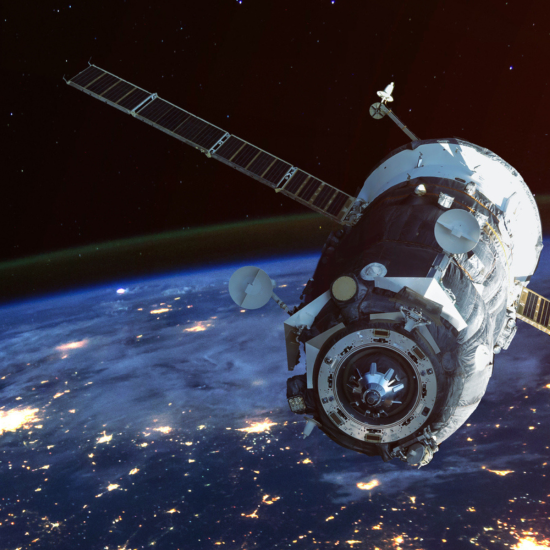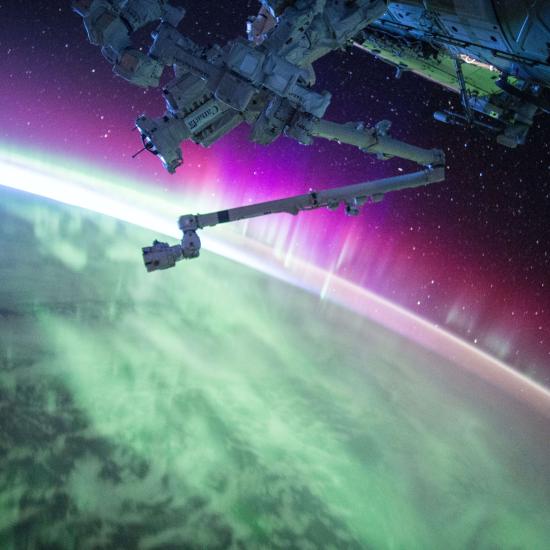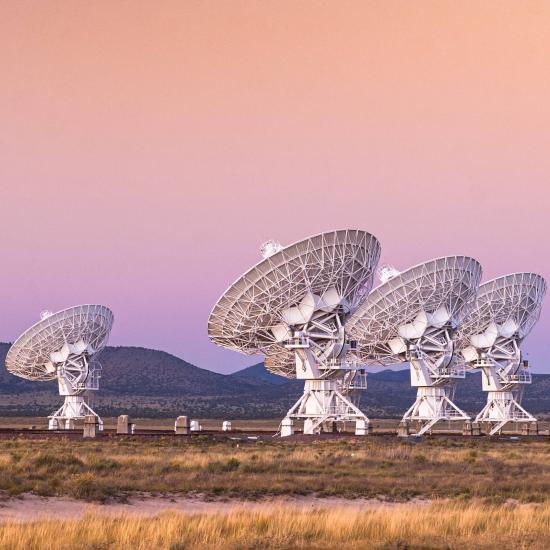Pathways to space
Panel event discussing what space represents as a business opportunity, collaboration models, and how success is measured in this sector.
The skies and the stars have fascinated humankind for millennia, captured in the telling 20th century idea of ‘The Endless Frontier’. In recent decades, dramatic shifts in the ‘how’ and ‘why’ of space exploration along with the ‘who’ and the ‘what’ are evidence of the rise of space commerce and entrepreneurial activity around the globe. This current commercial and entrepreneurial focus has changed both the actors and their aspirations for space, as well as the rules of the game.
Worth an estimated GBP £1 trillion in the coming decades, the global space industry offers wide open challenges and opportunities for investment, innovation, and entrepreneurial activity – this while mobilising cutting-edge technologies to solve intractable problems on earth. These experiments in distributed innovation, partnerships, commons governance and sharing of risks and tech expertise will only intensify in the coming years. This series of events explores these developments with a suite of panels that convene experts in science, commerce, and policy to share their insights and questions.
The Oxford Smart Space series will provide first-hand insights into the opportunities and challenges of the global space industry. It is co-hosted by the Oxford Space Initiative, along with Pembroke College and the Oxford Aeronautical Society (AerOx). The talks are part of efforts at Saïd Business School to build a social science initiative as part of the university-wide Oxford Space Research Network (OSRN). The initiative unites researchers and practitioners from economic sociology, technology and innovation management, governance and law, international relations, major programme management, strategy and leadership. To engage with the social sciences space activities, please contact us at smartspace@sbs.ox.ac.uk

Panel event discussing what space represents as a business opportunity, collaboration models, and how success is measured in this sector.

The commercial space industry is booming, and large-scale distributed platforms are playing a vital role in providing the infrastructure to support its growth. But what are the lessons and challenges of leading these platforms?

The clock is ticking to achieve the Sustainable Development Goals (SDGs) by 2030.
The panel brings together experts who discuss the potential and challenges of leveraging space for sustainable development, along with contemporary actions.

We are exploring the continuing importance of legacy governance institutions and public sector funding in space commerce today, and how private sector innovation is driving technological change to such a degree that it is in turn reinforcing the continued importance of meaningful governance.
Join this panel of experts as they discuss the ‘second space race’

It’s well past time to start asking ourselves the big hard questions about space. Who is space actually for? What will we bring with us from earth - literally and figuratively? Who goes in the first waves and how do we decide? Will we put forth the best of ourselves? Can we learn fast enough to save Earth?

In this final episode of Season 2, our five speakers explore the need to connect both emerging and established clusters comprising the space economy in the UK, helping small businesses engage with larger businesses and establish themselves in national and international markets and supply chains.

Director of the UK's National Space Academy programme Professor Anu Ojha OBE and Sam Adlen the CSO of Satellite Applications Catapult, Vanessa Clark the CEO of Atomos Space together with host Arnab Dutt OBE, SME Panel Member at the UK Cabinet Office discussed how space technologies are helping address various challenges that beset complex supply chains and small and medium-sized enterprises.

Cyber-defence expert Guy-Philippe Goldstein and science-fiction author Karl Schroeder, together with host Laura Anne Edwards, innovation catalyst, discussed the important role of imagination in exploring future scenarios and moderating what Edwards described as today’s ‘nationalistic and military tone’ in space ‘posturing’ and investment.

We explore the idea of Smart Space, a term that points to three important developments in the emerging space sector in Europe and the UK.

Space is a place, and its character is changing. From an alien domain where few ventured to undertake risky missions of exploration, it is currently undergoing a transformation into an accessible, viable location for commercial infrastructure focussed on boosting terrestrial economic activity.

In this episode, starting from examples of novel funding solutions observed in defence, security, intelligence, and related industries, we explore the distinctive conditions of space and alternative venture funding models that are unlikely in more standard commercial settings.

Find out what are the most relevant innovation opportunities and how entrepreneurs can further explore these opportunities and identify new business models to create a positive impact.

Join us for a conversation about the work that is happening and the work that needs to be done to attract a more representative set of people to invent solutions to space challenges and imagine new worlds that are more just.

In this panel, we explore the relation between specificities of the space sector (eg intense technical infrastructural requirements, and immense expense with less evident opportunities and governance concerns) and traditional models of finance and growth.
Michele Scataglini, Saïd Business School, Associate Fellow
David Lehmann, Saïd Business School, Research Assistant